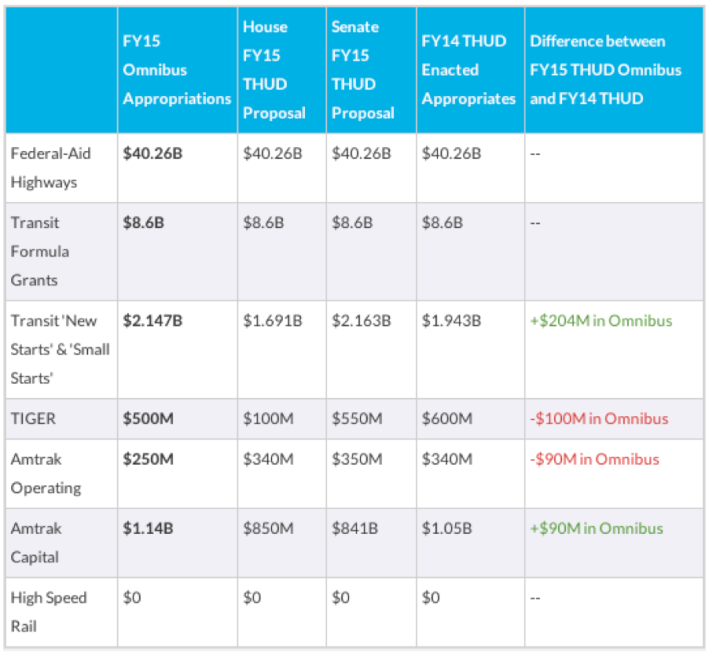
The drama is over; the House and Senate have both passed the "cromnibus" spending bill [PDF] that funds government operations through the end of fiscal year 2015. And the Department of Transportation's TIGER program survived.
While small, TIGER has proven to be a significant source of funding for local transit and active transportation projects, enabling cities, regions, and transit agencies to directly access federal support without going through state DOTs.
Back in May, Republicans proposed to cut the discretionary TIGER grant program by 83 percent and to limit TIGER grants to the GOP's own myopic view of transportation priorities: roads, bridges, ports, and freight rail. They explicitly stated that the funds should not be used for "non-essential purposes, such as street-scaping, or bike and pedestrian paths.” As Streetsblog reported in May, they also wanted to cut eligibility for a bunch of projects related to transit, sidewalks, carpooling, safety, planning, and congestion pricing.
The final outcome is better than that but worse than 2014. TIGER got trimmed from $600 million in funding this year to $500 million in 2015, while the House didn't get the ban on funding for active transportation projects that it wanted.
Unfortunately, the final bill cut $35 million that the Senate wanted to set aside for planning grants. "This is surely a case of being penny wise and pound foolish," wrote Transportation for America's David Goldberg "because good planning can avoid costly errors while making the most of limited transportation dollars."
Accompanying language to the bill also directs the Federal Highway Administration to establish a separate safety performance measure for non-motorized transportation [PDF] -- something bicycle and pedestrian advocates have demanded for a long time. Back in March, an FHWA official hinted that this would be coming in 2015.
Here's Goldberg's chart on the topline numbers from the bill:

Another provision tucked into the spending bill bars the National Highway Traffic Safety Administration (NHTSA) from conducting its “National Roadside Survey” to determine how many people drive under the influence. In the 40 years the agency has been doing the test -- which drivers consent to and are paid for -- no one has ever been arrested for drunk driving. Still, fears of "Big Brother" and "DUI checkpoints" brought about the prohibition.
The bill also includes an amendment, introduced by Sen. Susan Collins, to suspend certain rules requiring truck drivers to get a certain amount of rest at certain times.
The president is expected to sign the omnibus spending bill in the next few days.





